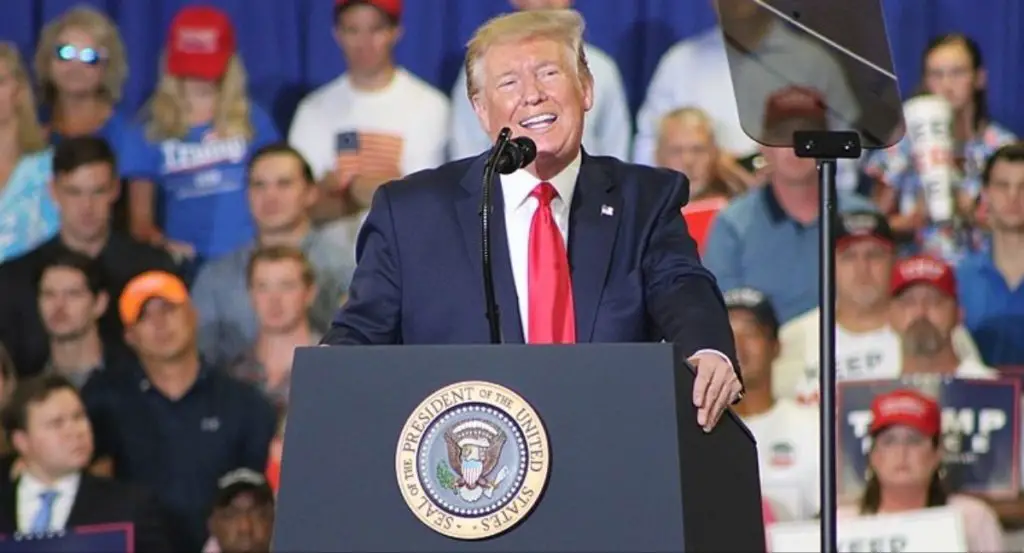A major decision to abandon a Kurdish group that had been a key ally to United States troops in the Middle East was an overnight policy decision that was apparently based on a distortion of military history.
On October 9 2019, the president defended his decision to stop supporting the Syrian Defense Forces (SDF), telling reporters, “They didn’t help us in the Second World War, they didn’t help us with Normandy.”
Trump attributed the remark to a post in the far-right blog TownHall.com, though he did not mention the site by name. However, the column in question only referenced the Allied attack on Normandy on June 6, 1944.
But the idea that the Kurds — a group spread out among several countries without a homeland of their own — did not work on behalf of the United States was quickly refuted by several more reputable outlets, including the Washington Post, which reported:
“It’s a weird framing that doesn’t really make sense historically or politically,” said Djene Rhys Bajalan, an assistant professor of Middle Eastern history at Missouri State University whose research focuses on Kurds at the end of World War I. “Numerous people who didn’t have nation-states weren’t necessarily at Normandy but participated either directly in the war or in terms of providing materials and labor for the war.”
Some Kurdish fighters were among them. “They didn’t have a state, so they couldn’t act as a state,” said Jordi Tejel, a professor of history at the University of Neuchâtel in Switzerland and author of “Syria’s Kurds: History, Politics and Society.” Still, he said individual Kurdish fighters from across the region did join other armies, fighting alongside the British and the Soviet Union’s Red Army.
Also, as the New York Times reported, an Albanian Kurd named Samand Aliyevich Siabandov won acclaim for his efforts fighting for the Soviet Union; their story included a reference to a 1946 edition of the English-language Moscow Times calling Siabandov a “Kurd Hero” for the country.
Trump’s decision to allow Turkey to attack the SDF is not the first time that the United States has failed to support its Kurdish allies, said Washington Institute fellow Bilal Wahab, a specialist in Kurdish-related policy. But it is different, considering that the SDF fought alongside American troops against the Islamic State terrorist group.
“What the Syrian Kurds ask in return is not statehood or independence or a seat at the United Nations. They only ask that the U.S. military sticks around because that flag is powerful enough to deter a Turkish invasion,” Wahab told National Public Radio. “And Mr. Trump’s decision was to remove that American flag and failing at protecting the Kurdish friends and deterring the Turkish invading army.”
- A Look At The History Of The U.S. Alliance With The Kurds
- Trump Defends Allowing Turkish Offensive Against Kurds: ‘They Didn't Help us in the Second World War'
- Actually, President Trump, Some Kurds Did Fight in World War II
- Trump Says the Kurds 'Didn't Help' at Normandy. Here's the History.
- Moscow News

